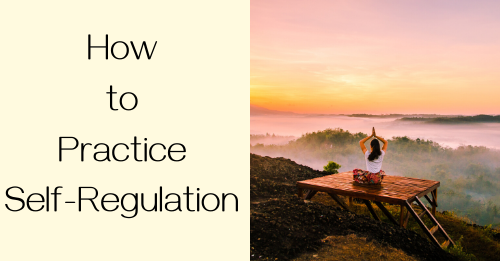In terms of emotional wellness, self-regulation is the process of controlling your thoughts, emotions and behaviors. When you self-regulate, you pause and think before taking an action related to an emotion or feeling. Everyone has self-regulation to some degree, and improving this skill can help you improve your emotional well-being.
What Is Self-Regulation?
Self-regulation has a wide range of definitions across topics like politics, business and mental health. When we narrow the idea down to mental wellness, self-regulation still has plenty of nuances. In terms of emotional wellness, self-regulation includes these categories and elements:
- Behavioral vs. emotional self-regulation: Two types of self-regulation exist — behavioral and emotional. Behavioral self-regulation involves acting in your best interest even when your feelings suggest taking a different action. Emotional self-regulation refers to controlling intense emotions like sadness and anger.
- The self-regulation process: The process of self-regulation consists of three steps — monitoring your behavior, judging your behavior and reacting to your behavior. These steps involve reflecting on your values and how they relate to your behavior.
How to Develop and Practice Self-Regulation
You can use many strategies to improve your self-regulation skills. Everyone has an approach that will work best for them because of our unique personalities and experiences. Self-regulation strategies can include:
- Mindfulness: Many psychologists suggest practicing mindfulness when you want to improve your self-regulation. With mindfulness, you can look at your thoughts, feelings and behavior non-judgmentally to make conscious decisions.
- Cognitive reframing: The cognitive reframing process involves challenging your thoughts and replacing them with positive ones. By rethinking your thoughts, you can develop a healthier reaction to the situation.
- Emotional literacy: Your emotional literacy is your ability to identify and understand your emotions and the emotions of others. Improving your self-regulation skills with emotional literacy involves understanding why you feel a certain way and finding healthy ways to resolve that feeling.
- Identify stressors and triggers: Everyone has certain stressors or trauma triggers that cause difficult feelings. Identifying these triggers can help you anticipate them and build healthy coping strategies for them.
- Deliberate thinking: Staying calm and thinking rationally before you react to a situation can help with practicing self-regulation. Try relaxing yourself before you respond to a situation and objectively consider the consequences of what you feel like doing.
The Importance of Self-Regulation in Recovery
The Recovery process involves practicing both emotional and behavioral self-regulation. During addiction, someone responds to a negative situation by misusing drugs or alcohol. Recovery specialists help patients learn self-regulation techniques that help them find new ways to manage this reaction. Throughout Recovery, patients learn how to regulate their feelings and actions with healthy behaviors instead of substance use.
Practicing Self-Regulation in Addiction Recovery
If you want to improve your self-regulation skills during Recovery, an addiction treatment center can help you learn how to manage your emotions and behaviors. Places like 7 Summit Pathways provide medicine and therapy to help you address your addiction symptoms and learn new behaviors. To learn more about self-regulation in Recovery, contact our staff or make your first appointment today.

